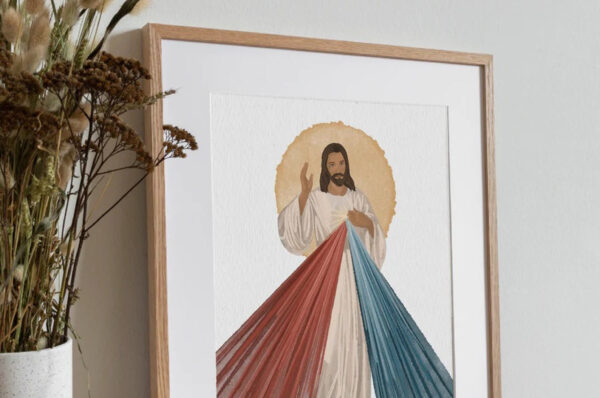“The only tragedy in life is not to have become a saint,” is a famous quote by the French writer Leon Bloy. At first glance, this quote seems terribly intimidating (how on earth can I expect to become a saint?). But to be a saint simply means to be in heaven, and we’re all called to be a part of that number. And every year on November 1, Catholics celebrate a special day to remember the saints of old and inspire us future saints to persist in our faith: All Saints Day.
Why does the Church think we need a day to celebrate all the saints when so many have their own recognized feast day (think Saint Patrick’s Day or Saint Nicholas’ Day)? Over time, the Church realized that for every one saint they canonized, there must be many more they didn’t know. All Saints Day is more about these unknown saints than the canonized variety. The people who have been declared a saint by the Catholic Church have their own date on the calendar when they are recognized for the ways they stayed true to Christ and lived heroic virtue. The Catholic Church can’t see everywhere all the time, but God does; he’s making new saints right now whether we know it or not. The Church gives us All Saints Day to recognize these unknown saints, ask for their prayers (they are alive in heaven after all) and give the average believer a renewed hope for heaven.
Even with this feast day, it can still be difficult to believe that God has a plan to make you or me a saint someday. But it helps to remember that saints had messy, complicated lives, just like each of us. Some saints started out as prostitutes, some as thieves. Some fought with their parents, others were murdered by people close to them. Our first pope flat out denied knowing Jesus. But in every case, the Holy Spirit was allowed to prune, to give hope and to bear fruit.
“Therefore, since we are surrounded by so great a cloud of witnesses, let us also lay aside every weight, and sin which clings so closely, and let us run with perseverance the race that is set before us” (Heb 12:1). This ancient Bible verse states, in the present tense, that there are a great number of people surrounding us that bear witness to Christ. Imagine how many more have been added to that number in the 2,000 years since Hebrews was written. How many of your ancestors might be part of that cloud of witnesses that we honor on All Saints Day?
All Saints Day is just one of many Catholic feast days when important moments or people from our history are remembered. Feast days are like national holidays, a word that comes from the old English words ‘holy’ and ‘day.’ Catholicism has its roots in the Jewish faith, which is structured, ordered and rich in tradition. If we go back to the beginning of Jewish history, we come to the story of creation, where God structured the world in space and time. Our calendar helps us to do that, too. The rhythm of the Church year gives us the spiritual seasons of life; seasons of waiting, repentance, reflection, evangelization and celebration.
For hundreds of years, Catholics have been celebrating the Feast of All Saints. The celebration has changed over the centuries, and in the 1400s, the Church started celebrating the evening before (vigil), known as All Hallows Eve (modern day “Halloween”). There are many stories about how different cultures have celebrated this holy day. One tradition in England that is reminiscent of our American tradition tells of people begging for treats (soul cakes) and promising to pray for the giver’s departed family and friends in exchange.
However we choose to celebrate All Hallows’ Eve and All Saints Day, we should keep the two days linked together. Let Mass be at the center of your celebration, because it is during Mass that we join all of heaven in our praise, and we sing with the angels and all saints. Think about a special meal or dessert you could make, and invite others to share it with you. Share stories about loved ones who have died and that you hope are in heaven. Pray the litany of the saints or sing along with Matt Maher’s version. Read about the life of a saint who lived in your country or who lived within the last century or who had something in common with you. Saint Pope John Paul II canonized 482 saints!
All of us are called to be saints — to live forever in heaven. And no one wants to do anything difficult alone. It’s much easier to stick with a challenge, like a workout plan, if you have a friend on board, too. Think of the saints as those friends. This All Saints Day, remember the great multitude of people rooting for us, our brothers and sisters in Christ, and ask them for help along the way.




